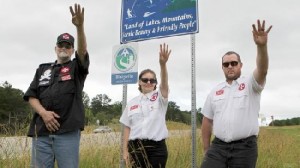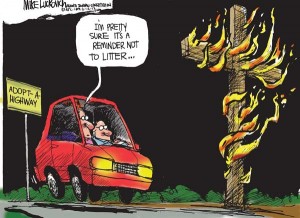
Earlier today, CNN’s inAmerica‘s Alicia Stewart posted about efforts by a North Georgia Ku Klux Klan chapter to adopt a local stretch of highway. That application was recently rejected, despite claims by KKK leaders that the Klan is a misunderstood, and ultimately peace-loving, organization.
“We do not hate anyone,” said Frank Ancona, the imperial wizard of the Traditionalist American Knights of the Ku Klux Klan. “The true Ku Klux Klan is an organization that is looking out for the interests of the white race. It is a fraternal organization, and we do good works.”
Ancona’s words are a contrast to criminal acts historically associated with the Klan – a divergence from intimidating images of hooded figures with lit crosses cutting through a dark night.
“We look out for the interest of our family first, I feel that other races feel the same way – it’s a natural instinct, ” he adds.
According to CNN’s reporting, the Georgia Department of Transportation makes the Adopt-A-Highway program open to “any civic-minded organization, business, individual, family, city, county, state or federal agency”; participating groups are provided vests and other equipment by the state to keep a chosen stretch of highway clean of litter. Adopt-A-Highway programs are funded locally (and receive no federal money), but do fall under the purvue of the laws of individual states.
Legally-speaking, I’m not sure whether or not the KKK have a “right” to adopt a stretch of highway. Article One of the Georgia constitution delineate the rights of Georgian residents to equal protection under the law, as well as the freedom of religion and peaceable assembly; all of these rights seem relevant in this case. Is it fair for the contemporary KKK members to be prevented from participating in this state program, based almost solely on who they are? On the one hand, this seems like clear discrimination against the Klan and its members by the Georgia state government.
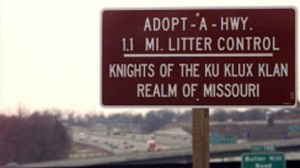
That being said, it’s impossible to extricate this incident from the mission of the Ku Klux Klan, and its violent history in carrying out its aims. The Ku Klux Klan is the nation’s oldest domestic terrorist and white supremacist organization, and during its hey-day, was given free reign to legally and extra-legally intimidate, assault, and even murder men and women of all races and creeds. The Klan of the twenty-first century claims to be a peaceful organization rather than a hate group, but actions speak louder than words: KKK members have continued to conduct lynchings as recently as the 1980’s, and former KKK leaders founded Stormfront, the Internet’s leading white supremacist website wherein racial hatred and intolerance runs rampant.
Most importantly, the KKK has yet to openly denounce its violent history and to repudiate current and former KKK members who have committed crimes in the name of the Klan. The KKK has yet to apologize for the countless deaths suffered at the hands of its members. The KKK has yet to ban cross-burning, despite the historical use of burning crosses to intimidate and terrorize people of colour. One KKK leader interviewed by CNN claimed, “Jesus Christ is our criteria of character. If you look at Romans 12:1-2, that is how Klans are supposed to live, that is the standard. We do not burn the cross, we light the cross to show that Christ is the light of the world.”
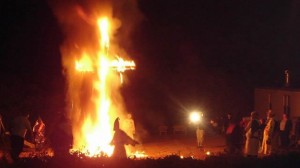
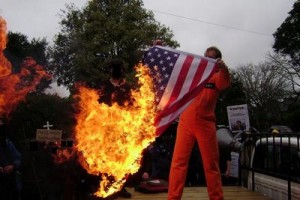
The public simply can’t be expected to forget the Klan’s crimes of the past, no matter how hard the Klan of today wants to re-brand itself as kinder, gentler and friendlier. And that brings me to the whole notion of the Klan trying to re-brand itself in the first place.
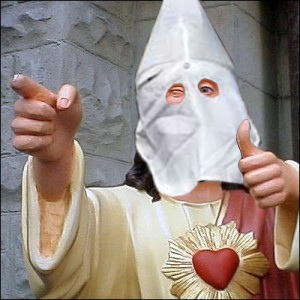
The KKK of today describes itself as a civic-minded organization, no different from other groups devoted to Black or Latino pride:
“We’re not racists,” [April Chambers, secretary of the North Georgia KKK chapter] told CNN Monday. “We just want to be with white people. If that’s a crime, then I don’t know. It’s all right to be black and Latino and proud, but you can’t be white and proud. I don’t understand it.”
But, how exactly do you re-brand white supremacy?
Racial supremacy is simply not the same thing as race nationalism or pride. Groups devoted to cultural and racial uplift do just that — they sponsor efforts to increase awareness and focus on culturally-specific histories and traditions. At best, they hope to instill pride into members of traditionally oppressed racial or ethnic groups; in short, to encourage folks not to be ashamed (or ignorant) of their racial identities. In the Asian American community, Asian American nationalist efforts are aimed at encouraging Asian Americans to think of their racial identity as just as worthwhile as any other.
This is in stark contrast to white supremacy, which is by definition based on the idea that Whiteness is superior to other racial identities. This is not about promoting shared racial history and traditions; proving one’s own race as “superior” can only occur when members of other races are proved to be “inferior”. And therein lies the rub: no matter how you try to dress it up, spouting the inferiority of other racial groups is, simply and plainly, racist hate speech.
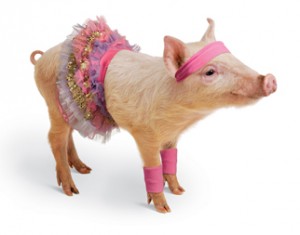
Allowing the KKK to sponsor a stretch of highway, and in so doing to plaster their name on signs along that stretch of highway, is — in the end — inappropriate. As long as the KKK remains committed to exclusion, oppression and intolerance towards others, I have a hard time accepting that the public should be inclusive and tolerant of them, and further to defend their right to participate in civil programs.
On the other hand, there is something strangely poetic about the KKK — a formerly widespread and powerful hategroup –being reduced to begging to pick up my trash. It couldn’t have happened to a more deserving domestic terrorist organization. I don’t normally litter, but if I ever find myself on a piece of highway adopted by the KKK, I might actually make an exception.
